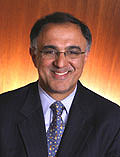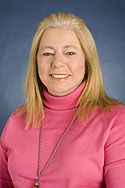If this issue was forwarded to you and you would like to begin receiving a copy of your own,
please pick your read and become a 60 day complimentary member.
Trial Subscription Sign Up
|
|
|
|
|
Volume 23, Issue 163, Jim Carnegie, Editor & Publisher
|
Tuesday Morning August 22nd, 2006
|
|
|
Radio News ®
|
 CC settles "Shellhammer suit" CC settles "Shellhammer suit"
Clear Channel confirms to RBR/TVBR the company has settled a class action lawsuit (known as "Shellhammer suit") in San Francisco Superior Court relating to claims for overtime and expense reimbursement by a proposed class of current and former account executives in California. "The settlement occurred before trial, there was no judgment, and Clear Channel did not admit liability," a company spokesperson said. We heard the settlement was for 22 million, but could not get a confirmation. The settlement included a full gag order, so the firm couldn't comment. From Oakland, CA-based Goldstein, Demchack, Baller, Borgen & Dardarian's website: "Our client B. Shellhammer worked long hours as an Account Executive selling radio advertising for a station in San Francisco owned and operated by Clear Channel Broadcasting. He was not paid overtime because Clear Channel improperly and unlawfully classified him as an exempt employee. When Mr. Shellhammer resigned, Clear Channel claimed he had not "earned back" his advance on commissions, and sued him to recover the amount he allegedly owed. On his behalf, Goldstein Demchak, with co-counsel Aaron Kaufmann, filed a cross-complaint together with Mr. Shellhammer's answer to the company's claim. The cross-complaint asserts a statewide class action on behalf of Mr. Shellhammer and all Clear Channel Account Executives who were not paid for overtime hours worked. In addition, the cross-complaint alleges that Mr. Shellhammer and other Account Executives were encouraged or required to spend their own money on client entertainment expenses that Clear Channel is required by law to reimburse. The San Francisco Superior Court granted Plaintiffs' motion to file the cross complaint."
 Entercom invests Entercom invests
almost 300M in stations
The divestiture of CBS stations has begun with a 262M sale to Entercom which will grow existing clusters in Memphis and Rochester and expand the group into Cincinnati and Austin. Meanwhile, Entercom is getting Radio One's Boston FM for 30M. Here are the CBS stations: In Austin, Entercom gets KKMJ-FM, KAMX-FM, KXBT-FM & KJCE-AM; in Cincinnati, it gets WUBE-FM, WKRQ-FM, WGRR-FM & WAQZ-FM; in Memphis, where it already has an AM and two FMs, it's adding WMC AM-FM & WMFS-FM; and in Rochester, where it already has an AM and three FMs, it's getting WRMM-FM, WCMF-FM, WPXY-FM & WZNE-FM. Spin-offs will be required there, although the company has not made any determination which stations will go on the block. Entercom's David Field told analysts that the deal was made within the group's financial comfort zone (it was prepared to walk if the price wasn't right) and that it remains open to further dealing if a proposal makes sense. He said the actual multiple was about 14xEBITDA, and added that factoring in growth potential at several of the stations made it more like 11x in their view, and when factoring in tax benefits the multiple could be seen to be as low as 8.5x. LMAs will kick in as soon as legally possible, probably in October. Also, closing will take place ASAP in Austin, Cincy and Memphis, and will be delayed in Rochester until spin-off plans are in place. An immediate LMA will go into effect for WILD-FM in Boston, which is coming from Radio One for 30M. It will enhance a two-AM, two-FM cluster, and will become a 24/7 repeater for the signal-challenged WAAF-FM. WAAF originates in the western portion of the market, while WILD provides good coverage downtown and to the south.
RBR observation: What's left on the CBS merchandise shelf? If you're still shopping at the CBS Radio store, the shelves remain well-stocked. Here are the markets and stations still on the block:
* Kansas City: KBEQ-FM, KMXV-FM, KCKC-FM, KFKF-FM
* San Antonio: KTSA-AM, KJXK-FM
* Columbus OH: WAZU-FM, WHOK-FM, WLVQ-FM
* Greensboro-Winston Salem: WSJS-AM, WMFR-AM, WSML-AM
* Buffalo-Niagara Falls: WJYE-FM, WBUF-FM, WBLK-FM, WYRK-FM, WECK-AM
* Fresno: KFPT-AM, KMJ-AM, KSKS-FM, KOQO-FM, KWYE-FM, KMGV-FM, KFJK-FM -- Happy shopping.
|
|
|
 What does Farid want from Disney? What does Farid want from Disney?
There was a lot of buzz yesterday after the Wall Street Journal reported that Citadel Broadcasting CEO Farid Suleman was seeking to renegotiate some terms of his deal to acquire ABC Radio from Disney. But just what is he trying to change? "I don't think he wants to walk away. He just wants to pay less," said one Wall Street source who can't be identified by name. Citadel's stock price has fallen so much since the 2.7 billion bucks deal was announced that, under the terms of the merger, Citadel would have to take on the maximum 250 million in additional debt to make up for the stock price shortfall. But in his Q2 conference call earlier this month (8/8/06 RBR #153), where Suleman insisted that the ABC deal was on track to close as planned, he blamed ABC Radio for the deterioration in his company's stock price, saying that the stock price would be higher if based on the performance of the Citadel stations, but that it had been dragged down by the underperformance of ABC Radio. One Wall Street analyst published a research note yesterday, noting that the WSJ article indicated that Citadel is currently seeking renegotiation of some of the financing terms, but Anthony DiClemente at Lehman Brothers isn't expecting any major change regarding price. "The original 2.7 billion deal announced in February was valued at 1.3 billion in stock and 1.4 billion in cash, however, there was a clause in the agreement that would guarantee an extra 250 million to Disney in assumed debt if Citadel's stock declined significantly. While Citadel may be able to cede slightly better refinancing terms on the margin, we do not believe the original value of the deal, nor the obligatory 250 million assumption of additional debt is likely to be revised," DiClemente told clients.
RBR observation: Major radio properties in New York, LA and Chicago don't come on the market very often, so Farid isn't going to easily step away from a deal to acquire stations in all three at once, plus the other ABC Radio O&O markets. And we especially doubt that he would walk away if doing so would trigger Citadel having to pay Disney an 81 million break-up fee. To avoid that he would have to prove that the underperformance of ABC Radio is much, much worse than that of Citadel's own stations - and it has not been a good year for anyone in radio. With English-language stations in both New York and LA taking a hit this year, large market radio groups have had tougher going than those in mid markets, like Citadel. And since Westwood One CEO Peter Kosann was high-fiving the network sales staff at his company for a flat Q2, we doubt that ABC Radio Networks is having a stellar year either. One Wall Street source says EBITDA as ABC Radio (stations/networks) is off 20 million from when the deal was signed with Citadel. Our take is that Bob Iger still wants to get Disney out of the radio business and that any new deal with someone else would probably bring a lower price tag than the existing deal with Citadel. So he doesn't want to walk away any more than Farid does. No doubt some compromise is possible to get this deal to closing without either side appearing to have taken a big hit. Meanwhile, though, no closing can be scheduled until it finally gets approval from the FCC and a vital letter from the IRS agreeing that the transaction is tax-free to Disney shareholders.
 Immigration changing demographics Immigration changing demographics
It will not come as any surprise to most people in the US that the latest census update shows a big increase in immigration into the USA, particularly coming from Mexico. The New York Times noted a 16% increase in immigrant households. The immigrant population in the six long-favored states: California, Texas, Florida, New York, New Jersey and Illinois, continues to grow. What's new are the great many additions to the list of immigration hotbeds. It's been going on for several years in places like North Carolina and Georgia. NYT noted new activity in places like South Dakota, Colorado, Missouri, New Hampshire and Delaware. And lets not forget states like Michigan and Montana. Or Washington, Connecticut, Nevada, Minnesota, and even Alabama, South Carolina, Kentucky, Ohio, and Pennsylvania.
RBR observation: One result of the influx of Hispanics has been an increase in the market for niche broadcast outlets. Established Hispanic broadcasters like Univision, Entravision and Spanish Broadcasting System have long been entrenched in the traditional markets in the gateway states. But for several years now, smaller companies have been getting in ahead of the curve in places where the Hispanic demo was just getting a foothold. As immigration populations reach critical mass, we can most likely expect to see bigger companies move in both by buying out the pioneers and also by bidding on signals now serving the mainstream. And we'll also see more and more mainstream broadcasters go after a piece of the immigrant market.
|
|
|
|
|
Ad Business Report TM
|
Fox buys up the blinks
 Clear Channel Radio and Fox Broadcasting announced a first-of-its-kind national radio campaign that uses "blinks," the shortest-length radio spots available. "Blinks" will be used to support the fall season premieres of Prison Break, House and The Simpsons. Conceived by, and running exclusively on, 1,100 CC Radio stations, "the first "blinks" - running every hour from 6 a.m. to 7 p.m. - supported last nights' premiere of Prison Break. Next up will be "blinks" for the House premiere on September 5th and The Simpsons premiere on 9/10. The FOX spots combine theme music and acerbic remarks from characters to remind loyal fans to tune in, and to attract new viewers through humorous copy. The "blinks" created for each FOX premiere were a collaborative effort between Clear Channel Radio's Creative Services Group and Fox Broadcasting's radio promotion team. The two-second spots will be used in combination with a :60 second spot in the same hour. Clear Channel Radio and Fox Broadcasting announced a first-of-its-kind national radio campaign that uses "blinks," the shortest-length radio spots available. "Blinks" will be used to support the fall season premieres of Prison Break, House and The Simpsons. Conceived by, and running exclusively on, 1,100 CC Radio stations, "the first "blinks" - running every hour from 6 a.m. to 7 p.m. - supported last nights' premiere of Prison Break. Next up will be "blinks" for the House premiere on September 5th and The Simpsons premiere on 9/10. The FOX spots combine theme music and acerbic remarks from characters to remind loyal fans to tune in, and to attract new viewers through humorous copy. The "blinks" created for each FOX premiere were a collaborative effort between Clear Channel Radio's Creative Services Group and Fox Broadcasting's radio promotion team. The two-second spots will be used in combination with a :60 second spot in the same hour.
|  The House Spot | The House Spot |  The Simpsons Spot | The Simpsons Spot |
 Kaye Bentley, Fox Broadcasting SVP, tells RBR/TVBR they chose the blinks because they've got iconic shows like The Simpsons, House and Prison Break. "We figure at this point it's just a tune-in message, a real quick 'tonight-tonight-tonight' message. We've been talking about this for probably six months and we kind of knew we were going to do it now for the Fall." While they were working on the creative, she says they realized that the one-second Blink that was proposed was not going to work. "We creatively tried it with one second and we really couldn't do what we wanted. So we went back to Clear Channel and said we think we can do this but we need two seconds. We both agreed and moved forward." Is it really a lot cheaper to run with the blinks? "It's extraordinarily cost-effective. It is dramatically cheaper than a :30 second network buy. And I can honestly say that because we've done this with them for :30s-a couple of years ago with '24' - the same execution, the same number of markets, the same number of stations - and it's dramatically cheaper. This is just reinforcement for a longer message, but it's also meant to appear in a place where you're not going to normally expect to hear commercials. They're not in commercial brakes-they're within the body of the broadcast. A song will finish and all of a sudden you will hear, 'DOH! Simpsons tonight on Fox.' And that's kind of nice." Kaye Bentley, Fox Broadcasting SVP, tells RBR/TVBR they chose the blinks because they've got iconic shows like The Simpsons, House and Prison Break. "We figure at this point it's just a tune-in message, a real quick 'tonight-tonight-tonight' message. We've been talking about this for probably six months and we kind of knew we were going to do it now for the Fall." While they were working on the creative, she says they realized that the one-second Blink that was proposed was not going to work. "We creatively tried it with one second and we really couldn't do what we wanted. So we went back to Clear Channel and said we think we can do this but we need two seconds. We both agreed and moved forward." Is it really a lot cheaper to run with the blinks? "It's extraordinarily cost-effective. It is dramatically cheaper than a :30 second network buy. And I can honestly say that because we've done this with them for :30s-a couple of years ago with '24' - the same execution, the same number of markets, the same number of stations - and it's dramatically cheaper. This is just reinforcement for a longer message, but it's also meant to appear in a place where you're not going to normally expect to hear commercials. They're not in commercial brakes-they're within the body of the broadcast. A song will finish and all of a sudden you will hear, 'DOH! Simpsons tonight on Fox.' And that's kind of nice."
|
|
|
|
| Media Markets & Money TM |
Close encounter in Kansas
KANS-AM, the quintessential Kansas radio station (if you go strictly by call letters), has officially changed hands. The Emporia station is now under the care and feeding of Marty Hills' Kansas Radio, Inc., which acquired the station from C & C Consulting for 120K. Folks on the ground won't notice much change. The buyers have been running the station in an LMA dating back to 9/1/03.
|
|
|
|
| Washington Media Business Report TM |
There's a new economist in town
The FCC has reached into the ivied halls of academia for its new Chief Economist. Dr. Michelle P. Connolly will make the move from the Econ department at Duke University to take on the lead role at the Commission. FCC Chairman Kevin Martin said, "I am pleased Michelle has agreed to serve in the critical role of Chief Economist. Her talent and expertise will be a great asset for the Commission and will strengthen our policy-making." Her main areas of interest thus far have been "...the implications of technological progress and diffusion, international trade, and human capital on growth and development."
|
|
|
|
| Entertainment Media Business Report TM |
 Free 9/11 memorial programming Free 9/11 memorial programming
Art Vuolo, "Radio's Best Friend," produced a gripping mini-documentary in 2002 on the outstanding job that radio stations did in covering the tragic events of September 11th, 2001. For the five year anniversary, Vuolo is making the audio available as an MP3 file for download and airing without charge. Running time is 12:50. "It will affect your listeners deeply. It contains actual audio from several major New York and some Washington, DC, stations, and it is very strong!" Art says. The download is on vuolovideo.com.
WLIB going Gospel
Passing by the Country and Oldies format holes in the New York market, Inner City's WLIB is going to launch a Contemporary Gospel format when Air America Radio vacates the 1190 frequency the end of this month. Surprisingly to many, picking up the new Black Talk network from Radio One was never considered as an option after talks fell apart on a joint venture with Randy Michaels to launch a local-oriented liberal Talk format.
|
|
|
|
| Internet Media Business Report TM |
Rep deal for pubcasters online
NPB Interactive (NPBi), the newly formed on-line sales division of National Public Broadcasting, announced an agreement with PBS to represent PBS.org for the sale of display underwriting and digital sponsorships on PBS.org. NPB Interactive will seek web sponsorships and display underwriting starting with a broad range of content available on the PBS website. PBS.org features sites for more than 1,800 PBS TV programs as well as substantial web-only content, podcasts and real-time learning adventures. The initial pages available for sponsorship on PBS.org will include the 6 "neighborhoods" aggregating PBS-branded content into easily navigable environments that cater to visitors' specific interests, including Arts, News & Views, History, Science & Technology, Business & Finance and Home & How-To. Operative, Inc., an online advertising solutions provider, has been chosen by NPBi as the network ad management partner. Operative, through its Dashboard product, will provide global transparency into NPBi's operations, while helping to manage all network traffic. Operative's service will also be made available to PBS and NPR affiliated stations nationwide. NPB Interactive also reps the web sites of major public television and public radio stations.
|
|
|
|
| Programming Business Report |
 The explosion of Hispanic The explosion of Hispanic
formats and networks
Spanish-language radio in the US used to mean a full time AM that was akin to the old full service station with a little talk, news, music, sports and community service-or in many cases, a few brokered hours a day or week. It has since evolved from that very thin basic radio model into a plethora of different formats that are hyper-targeted based on age, ethnicity, political, informational, sports and current events interests. The amount of new immigration continues to fuel the growth of Spanish language media in general. According to Arbitron's Hispanic Radio Today 2006 study, there has been a 34% increase in Spanish-language radio stations in the past seven years alone. Spanish-language stations have not only migrated on AM but heavily on the FM side as well. The full service Spanish-speaking stations are now called Spanish Variety. In some markets AM still features music of a variety of sorts-mainly oldies, such as La Preciosa, Recuerdos, Salsa Classica, Oldies Mariachi or traditional Regional Mexican (still the most popular format). Like general market, Spanish News/Talk now dominates the AM dial, especially in major markets. Spanish Religious is quite popular on AM as well. On the FM side, Spanish AC formats abound, with monikers like Amor and Suavé. Some include Rock en Espanol bands such as Shakira and Mana. Classic Hits is also starting to see its place on the FM dial for Hispanic radio. Then you have the young stations with a music mix of Reggaeton, Spanish Hip-Hop, Rap and R&B; sometimes in English, sometimes in Spanish. Traditional Hispanic formats like Salsa, Spanish Tropical and Bachata are still thriving, with much of the audience from Caribbean/coastal Central America. SBS's Mega 97.9 (WSKQ-FM) NY is one very successful example. Tejano, which has kind of faded a little bit, is still of interest, especially in Texas and the middle southwest.
 Programming to the assimilated Programming to the assimilated
Hispanic listeners in the U.S. are at different levels of cultural assimilation, and those levels vary by market. In a market with higher levels of Spanish dominant, with less-assimilated listeners, formats that mirror the music tastes from their country of origin are the logical choice. "This has forced broadcasters to fine-tune formats that will reach specific target audiences rather than trying to be formats for all ages and nationalities," observes Alfredo Alonso, former CEO of Mega Communications and current resident Hispanic guru at Clear Channel Radio. "Successful programmers know the composition of their local communities and program accordingly." Says Don Davis, Principal, Davis Research, which specializes in Hispanic radio: "In markets with more English-dominant or U.S.-born Latinos, formats that connect to their dual American-Latin heritage can be very successful. If a broadcaster owns enough signals in a market, they may try several of these strategies in the same cluster, if available audience is present." "The proliferation of formats in Spanish language is due to the growth of that audience, but it is also an effort on the part of the broadcaster to reach the more assimilated Hispanic or those returning to their "roots" via Spanish music," concluded Amador Bustos, a successful entrepreneur who built Z-Spanish Radio Networks (sold to Entravision) and is now calling their latest flagship format "La GranD," which addresses first and second-generation individuals of Mexican origin with a blend of Rancheras, Norteñas, Banda, Grupos, plus a dash of Tejano and Cumbia.
Tomorrow: One hot topic right now in Spanish-language radio is whether broadcasters are instructing their air talent to market in English or Spanglish or to be purist about Spanish.
|
|
|
|
| Transactions |
73M KWCH-TV, KBSD-TV, KBSL-TV & KBSH-TV Wichita-Hutchinson KS (Hutchinson, Ensign, Goodland, Hays KS) from MG Broadcasting LLC, a subsidiary of Media General Communications Inc. (James Zimmerman) to Sunflower Broadcasting Inc., a subsidiary of Schurz Communications Inc. (Todd F. Schurz). Cash. Includes non-compete. Stations are CBS affiliates. KWCH-TV is flagship, others are satellites. [File date 7/31/06.]
4M WIHN-FM Bloomington IL from AAA Entertainment Licensing LLC (Peter H. Ottmar) to Connoisseur Media of Bloomington LCC, a subsidiary of Connoisseur Media LCC (Jeffrey D. Warshaw, Michael O. Driscoll). 200K escrow, balance in cash at closing. Superduopoly with WBBE-FM, WVMG-FM. [File date 8/4/06.]
|
|
|
|
| Stock Talk |
Lowe's lowers stock prices
Poor results from home improvement chain Lowe's put stock traders in a blue funk on Monday. The Dow Industrials fell 36 points, or 0.3%, to 11,345.
Radio stocks slid with the market. The Radio Index was off 1.231, or 0.9%, to 134.484. Of stocks in the news, Citadel fell 0.6% as the Wall Street journal reported that it was trying to adjust financing terms of its deal to acquire ABC Radio from Disney. Disney was 0.2%. Entercom agreed to buy several stations from CBS and one from Radio One. Entercom was down 0.1%, CBS (Class B) up 0.7% and Radio One (Class D) down 0.5%.
|
|
|
|
| Radio Stocks |
Here's how stocks fared on Monday
| Company |
Symbol |
Close |
Change |
Company |
Symbol |
Close |
Change |
|
Arbitron
|
ARB
|
|
35.41
|
-0.45
|
Hearst-Argyle
|
HTV
|
|
21.94
|
-0.09
|
|
Beasley
|
BBGI
|
|
7.01
|
unch
|
Journal Comm.
|
JRN
|
|
10.67
|
-0.11
|
| CBS CI. B |
CBS |
 |
27.71
|
+0.19
|
Lincoln Natl.
|
LNC
|
 |
60.14
|
-0.22
|
| CBS CI. A |
CBSa |
 |
27.69
|
+0.17
|
Radio One, Cl. A
|
ROIA
|
 |
5.74
|
-0.05
|
| Citadel |
CDL |
|
8.70 |
-0.05 |
Radio One, Cl. D
|
ROIAK
|
|
5.76
|
-0.03
|
|
Clear Channel
|
CCU
|
|
27.97
|
+0.07
|
Regent
|
RGCI
|
|
4.10
|
-0.10
|
|
Cox Radio
|
CXR
|
|
15.14
|
-0.12
|
Saga Commun.
|
SGA
|
|
7.20
|
-0.22
|
|
Cumulus
|
CMLS
|
|
9.60
|
-0.18
|
Salem Comm.
|
SALM
|
|
10.93
|
-0.42
|
|
Disney
|
DIS
|
|
29.97
|
+0.06
|
Sirius Sat. Radio
|
SIRI
|
|
3.89
|
-0.02
|
|
Emmis
|
EMMS
|
|
12.05
|
+0.09
|
Spanish Bcg.
|
SBSA
|
|
4.33
|
-0.02
|
| Entercom |
ETM
|
|
24.45
|
-0.03
|
Univision
|
UVN
|
|
33.62
|
+0.13
|
|
Entravision
|
EVC
|
|
6.93
|
-0.02
|
Westwood One
|
WON
|
|
6.96
|
-0.06
|
|
Fisher
|
FSCI
|
|
40.03
|
+0.31
|
XM Sat. Radio
|
XMSR
|
|
11.24
|
-0.19
|
|
Gaylord
|
GET
|
|
41.71
|
-0.09
|
-
|
-
|
-
|
-
|
-
|
|
|
|
|
|
|
Bounceback
|
 We want to We want to
hear from you.
This is your column, so send your comments and
a photo to [email protected]
The RBR discussion of commercial load (units vs minutes) exemplifies how far off the track our industry has wandered. As any programmer knows, LISTENERS are the arbiters of what constitutes clutter, not industry executives. To a listener, a :10 is just as much a commercial as a :60. Research shows that in many cases, listeners even consider station sweepers and promos commercials. Reducing the number of MINUTES while increasing the number of UNITS, is the type of rationale that put is the predicament that the industry currently faces. Reducing minutes and not units is simply smoke and mirrors for the media buying and Wall Street side of our industry. If our industry continues to follow the "Money trail" rather than the "Listener trail" we'll continue to experience both listener and revenue erosion. How hard is it to understand that the more commercials we try to jam down a listener's throat, the less effective those commercials become? Wall Street is witnessing radio mortgaging its entire future to make an extra penny today.
Russ Oasis
WKLU Indy
|
|

|
Below the Fold
|
|
Ad Business Report
Fox buys up the blinks
Clear Channel & Fox a first of-its-kind national radio campaign...
Media Markets & Money
Close encounter in Kansas
KANS-AM, has officially changed hands...
Entertainment Media
Business Report
Free 9/11 memorial programming
Art Vuolo, "Radio's Best Friend," produced a gripping mini-documentary...
Internet Media Business Report
Rep deal for pubcasters online
NPB Interactive (NPBi), the newly formed on-line sales division...
Programming Business Report
Explosion of Hispanic
Formats and networks...
|
|
|
Radio Media Moves
|
 Mondale joins Mondale joins
WCCO-AM
That's Eleanor Mondale, who was brought up in Minnesota politics as her dad, Walter, served in the US Senate and then as Vice President of the United States. But she will have more to talk about than politics, having survived brain cancer that just a year ago was expected to kill her. Now she is vibrant, active and ready to co-host the 9 am to noon show on CBS Radio's WCCO-AM Minneapolis-St. Paul with Susie Jones.
JJ to Z100
WHTZ-FM "Z100" New York announced that JJ Kincaid has joined the station as afternoon host, 2-6pm. He comes from Clear Channel sister KHKS-FM Dallas.
|
|
|
More News Headlines
|
Are TV audiences
and price trends
making sense?
A study from a global research and consultation firm confirms a notion we've seen elsewhere...that television companies are increasing their advertising rates even as their audiences shrink. The company is McKinsey & Co., and according to a report, it notes that by 2010, the value of advertising on television to the company footing the bill will be reduced to only 35% of the effectiveness it had in 1990. The company says viewership since then has gone down 41%. Meanwhile, the cost of the ads has been going in the other direction, rising by 37% over the same period of time. Anybody who's paid any attention at all realizes the onslaught of new entertainment vehicles competing for the attention of consumers, particularly the younger ones more open to trying new things.
RBR observation: Television may be able to continue to command a high price tag despite audience erosion because the audience hasn't eroded to any one place. It's going to the Internet, to iPods, to video games, to satellite, all while old media is fighting to hang onto what consumer attention it can. New media may be siphoning off regular viewers from television, but none of them can put together one massive audience like TV still can on occasion. But we don't think anybody can see this as a sustainable trend. If the audience arrow is going down, there is inherent danger in continuing to push the price arrow up.
This VP or that VP
Not being owned by Clear Channel like our competitor, Inside Radio, we at RBR are not intimately acquainted with the internal organizational structure of Clear Channel Radio. Apparently when we referred to "Regional Vice Presidents" yesterday (8/21/06 RBR #162) we should have said "Senior Vice Presidents." No word yet from CC Radio CEO John Hogan on his further reorganization moves.
|
|
|
RBR Radar 2006
|
|
Radio News you won't read any where else. RBR--First, Accurate, and Independently Owned.
|
RBR News Analysis
Waiting for more shoes to fall
Clear Channel Radio CEO John Hogan indicated in his memo announcing three Executive Vice Presidents of Operations who have split up the country that more changes are coming. That has created a buzz within the company about just what else will change. One rumor heard repeatedly is that several Regional Vice Presidents are going to keep their titles but effectively be demoted - having to personally run a local market (after firing the current market manager) and oversee only smaller markets, while the large market managers will report directly to their new Exec. VP of Operations. If that happens, see this RBR for details
08/21/06 RBR #162
Cox has more than one
quiet deal up their sleeve
Cox Radio has more than one deal in the works that it is keeping quiet about, but has to report, at least in vague terms, in its quarterly SEC filings. These quiet deals have been noted in those quarterly filings for five straight quarters, but haven't yet been executed and Cox hasn't identified the stations or sellers involved. What little is known is this: Want to read see
08/21/06 RBR #162
Maximizing HD radio signals
As In-Band On-Channel (IBOC) HD Radio is becoming a reality for a growing number of radio stations nationwide, so also are the logistical challenges of integrating digital transmissions into an existing infrastructure. As with analog, the goal of any station is to ensure that the maximum amount of power produced by the digital transmitter is radiated from a suitable antenna into free space, where it can be picked up by the listening audience. There are two components involved see the detailed RBR analysis in
08/21/06 RBR #162
Software providers readying
Arbitron PPM rollout
Arbitron says more than a dozen firms are on track to upgrade their systems from diary-based ratings data to Portable People Meter based ratings information. "Not only does Arbitron have to get its software reporting systems ready for Portable People Meter ratings, there are many other buying, planning, research, sales, traffic and presentation systems that the radio industry relies on that we want to see ready for PPM when it arrives" For the providers that are ready see
08/18/06 RBR #161
Product placement
continuing to surge
Advertisers more and more are trying to move from around to within broadcast programming, resulting in huge growth margins for the product placement business. According to PQ Media Research, placements globally grew 42.2% in 2005 and will come pretty close to matching that pace by the end of this year. The 2005 total revenue for product placement was pegged at 2.21B. It is predicted to hit 3.07B by the end of the year, a 38.8% growth rate.
08/18/06 RBR #161
|
|
|
|
 |
State Broadcast Association
President for one of the nation's top broadcast associations seeks a replacement for its retiring executive. Applicants must have broadcast management experience; knowledge of broadcast governmental, legal and regulatory affairs; an awareness of small and medium market broadcaster needs; ability to plan and coordinate a convention, workshops, seminars, and solicit event sponsors. Must have excellent verbal and written communication skills.
See Radio Careers
Talk Radio Network
Seeking professionals in three areas to join our TRN team: Executive, Board Operator with 2 years experience and Staff Engineer that can take initiative. EOE. For complete details all three positions
See Radio Careers
General Manager
Saga Communications has a rare opening at Rock 102 and Lazer 99.3. Excellent facilities, benefits and quality of living in Springfield, MA. EOE.
See Radio Careers
Hard finding that key person
to fill the important position at your organization? Media HeadHunters is the place that key media firms use to get results. See Media HeadHunters and get results with service--Period.
|
 |
|
|
|
|
Help Desk
|
__FIRST__ __SECOND__ :
Having problems with our epapers?
Please send Questions/Concerns to:
[email protected]
If you wish to remove your name completely from our database use this link __UNSUB__
RBR Epaper --  108 annual 108 annual
or just  9 a month 9 a month
|
|
|
|
©2006 Radio Business Report, Inc. All rights reserved.
Radio Business Report -- 2050 Old Bridge Road, Suite B-01, Lake Ridge, VA 22192 -- Phone: 703-492-8191
|
|